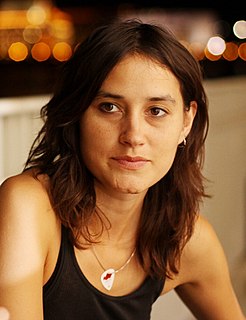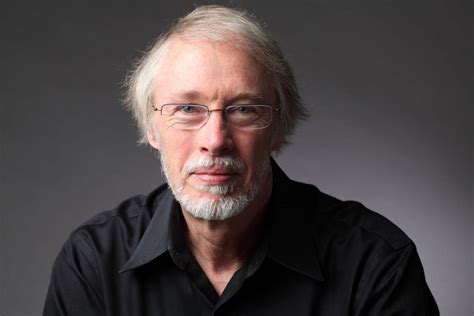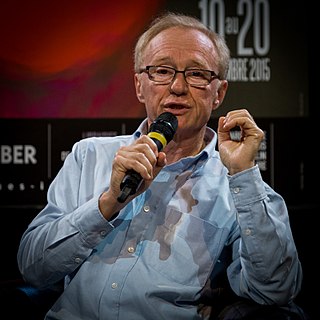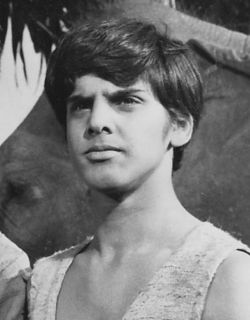A Quote by John Ruskin
To invent a story, or admirably and thoroughly tell any part of a story, it is necessary to grasp the entire mind of every personage concerned in it, and know precisely how they would be affected by what happens; which to do requires a colossal intellect: but to describe a separate emotion delicately, it is only needed that one should feel it oneself; and thousands of people are capable of feeling this or that noble emotion, for one who is able to enter into all the feelings of someone sitting on the other side of the table.
Quote Topics
Able
Affected
Any
Capable
Colossal
Concerned
Describe
Emotion
Enter
Entire
Every
Feel
Feeling
Feelings
Grasp
Happens
How
Intellect
Invent
Know
Mind
Necessary
Needed
Noble
Oneself
Only
Other
Part
People
Precisely
Requires
Separate
Should
Side
Sitting
Someone
Story
Table
Tell
Thoroughly
Thousands
Thousands Of People
Which
Would
Would Be
Related Quotes
I think the best thing about music is that someone could be writing a song that's so personal, and it tells so many other people's story at the same time. It kind of exemplifies that we are all kind of on the same wave[length] - it's amazing how comforting somebody else's story can be, because we have experienced their story in some way or another, and I can totally relate, and I get to feel that feeling and the expression of that emotion. I get to feel like as a listener, that somebody understands me, which is pretty incredible.
There did not have to be a moral. She need only show separate minds, as alive as her own, struggling with the idea that other minds were equally alive. It wasn't only wickedness and scheming that made people unhappy, it was confusion and misunderstanding, above all, it was the failure to grasp the simple truth that other people are as real as you. And only in a story could you enter these different minds and show how they had an equal value. That was the only moral a story need have.
I don't particularly like the idea that there's an arc to the story and that therefore in this scene you have to convey this bit of information or emotion. I like more the feeling that, of course, there is a shape to the story, but that each scene should feel right, should be true at that moment, and that gradually you accumulate these moments of truth until you get enough of them together that it becomes a story that's interesting.
Technology adds nothing to art. Two thousand years ago, I could tell you a story, and at any point during the story I could stop, and ask, 'Now do you want the hero to be kidnapped, or not?' But that would, of course, have ruined the story. Part of the experience of being entertained is sitting back and plugging into someone else's vision.
A story is a way to say something that can't be said any other way, and it takes every word in the story to say what the meaning is. You tell a story because a statement would be inadequate. When anybody asks what a story is about, the only proper thing is to tell them to read the story. The meaning of fiction is not abstract meaning but experienced meaning.
Whereas life separates meaning from emotion, art unites them. Story is an instrument by which you create such epiphanies at will, the phenomenon known as aesthetic emotion...Life on its own, without art to shape it, leaves you in confusion and chaos, but aesthetic emotion harmonizes what you know with what you feel to give you a heightened awareness and a sureness of your place in reality.
If you ant to feel deeply, you have to think deeply. Too often we separate the two. We assume that if we want to feel deeply, then we need to sit around and, well, feel. But emotion built on emotion is empty. True emotion- emotion that is reliable and does not lead us astray- is always a response to reality, to truth.
For my part, I think we need more emotion, not less. But I think, too, that we need to educate people in how to feel. Emotionalism is not the same as emotion. We cannot cut out emotion - in the economy of the human body, it is the limbic, not the neural, highway that takes precedence. We are not robots...but we act as though all our problems would be solved if only we had no emotions to cloud our judgement.
In fiction you can make up everything to create the feeling. You can manufacture a story with whatever tools you want. With nonfiction you have to rely on what actually happened to describe what you're feeling. That's hard. You have to know what will feed into the emotion you're trying to convey. And that's hard because you don't necessarily know what causes your emotions.
The primary urge that motivates and engenders writing...is the writer's desire to invent and tell a story, and to know himself. But the more I write, the more I feel the force of the other urge, which collaborates with and completes the first one: the desire to know the Other from within him. To feel what it means to be another person. To be able to touch, if only for a moment, the blaze that burns within another human being.
If you gauge how you're doing on whether somebody is responding vocally or not, you're up a creek. You can't do that; you kind of have to be inside of your work and play the scene. And tell the story every day. Tell the story. Tell the story. Regardless of how people are responding, I'm going to tell the story.






































